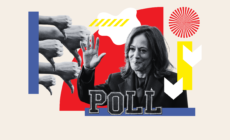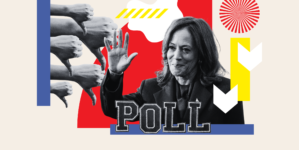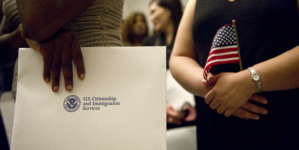-
Lawrence Summers: This Law Made Me Ashamed of My Country - 14 mins ago
-
JD Vance Heckled, Booed at California Dinner - 31 mins ago
-
Haiti’s Landmark Oloffson Hotel is Destroyed in an Apparent Arson Fire - 58 mins ago
-
Kamala Harris’ Comeback Hopes Take a Major Blow - about 1 hour ago
-
US Immigration Backlog Hits All-Time High - 2 hours ago
-
South Korea Holds Its Chin Up as Trump Wields Tariff Threat - 2 hours ago
-
Couple Order ‘Non-Alcoholic’ Wine at Restaurant in Europe—Doesn’t Go Well - 2 hours ago
-
5 Israeli Soldiers Killed in Gaza, Military Says - 2 hours ago
-
Donald Trump Sending More Weapons to Ukraine: What We Know - 3 hours ago
-
What to Know About P.O.W.s in Myanmar’s Brutal Civil War - 3 hours ago
People in Florida Can’t Afford Their Credit Card Bills
Floridians are having trouble paying their credit card bills—and the consequences of doing so can be both negative and long-lasting.
At 11.68 percent, Florida has the second-highest credit card delinquency rate in the nation, according to Federal Reserve data collected by WalletHub. The state’s average rate surpasses that of New York, Texas and California.
This data reflects credit card accounts that have been past due for 90 days or more, which is considered serious delinquency.
Why It Matters
The average credit card delinquency rate nationwide sits at 10.52 percent, and only seven states have rates higher than this average.
Florida’s high credit card delinquency rate coincides with news of skyrocketing credit card defaults in the U.S.

Justin Sullivan/Staff/Getty Images
What To Know
Nevada is the only state to exceed Florida’s average credit card delinquency rate at 12.95 percent. Arkansas follows Florida at 11.29 percent.
Florida is also in the top 10 states with the highest average credit card debt, coming in at number seven, according to WalletHub data.
What Is Credit Card Delinquency?
Being delinquent on a credit card bill means a person is late with a payment, whereas defaulting on your credit card bill means you’re so late that the card issuer turned the debt over to a collection agency.
Ted Rossman, senior industry analyst at Bankrate, told Newsweek that fees for late payments can start if you’re even a day late.
“The credit score damage gets worse when you’re 60 days late and then 90. Once you hit 180 days late, that’s the typical cutoff for default. At that point, the credit score damage is more severe and your debt will probably be turned over to a collections agency. You could also be sued for nonpayment,” Rossman said.
National Credit Card Delinquency Rates
While national credit card delinquency rates improved slightly from Q2 to Q3 2024, according to the Federal Reserve Bank of New York’s Q3 2024 Household Debt and Credit report, rates are still high compared to previous years.
“According to the Fed, the credit card delinquency rate hit its highest point since 2011 in Q2 2024,” said Rossman. “It fell slightly in Q3 2024, but it’s still quite elevated relative to the past decade-and-a-half.”
The New York Fed also reported a slight uptick in national credit card debt transitioning to “serious delinquency” (90 days or more) as well as an increase in overall delinquency rates—which encompass rates for everything from credit cards to mortgages to student loans.
What People Are Saying
Chip Lupo, writer and analyst for WalletHub, told Newsweek: “Credit card delinquency and charge-off rates, currently at 3.23% and 4.37%, respectively, highlight ongoing challenges for consumers. While these rates have improved slightly from recent quarters, they remain elevated compared to pre-pandemic levels. This suggests that many households are still struggling to manage rising debt amid economic pressures.
Several factors contribute to this trend. Persistent inflation has stretched household budgets, leaving less income to cover monthly payments. Higher interest rates have also made borrowing more expensive, and that’s driven up minimum payments and made it harder for consumers to pay down balances.”
Donghoon Lee, economic research advisor at the New York Fed, said in a press release: “Although household balances continue to rise in nominal terms, growth in income has outpaced debt…Still, elevated delinquency rates reveal stress for many households, even amid some moderation in delinquency trends this quarter.”
What Happens Next
“If the Federal Reserve implements additional rate cuts in 2025, it could provide some relief to consumers struggling with delinquencies,” said Lupo.
The Fed cut rates three consecutive times last year, most recently in December 2024. Yet despite these cuts, credit card interest rates haven’t dropped much in recent months, noted Rossman. Bankrate forecasts only a slight decrease in 2025.
If you’re struggling with credit card delinquency, both Lupo and Rossman suggest contacting your credit card issuer for help, whether that involves a repayment plan or hardship program.
Source link



















